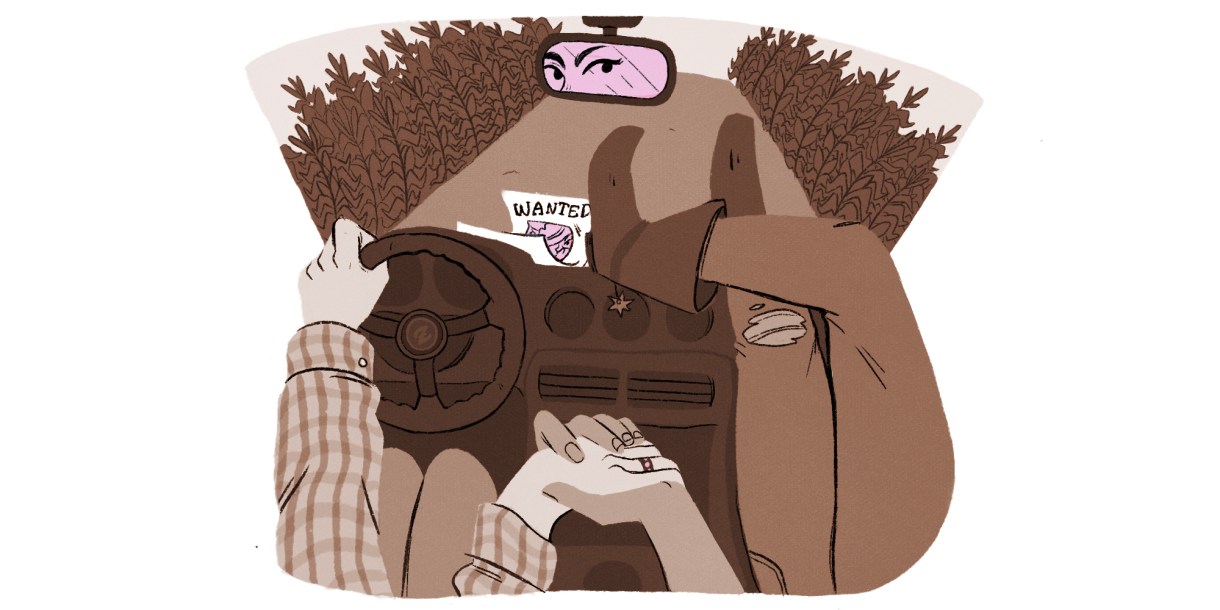
editorial illustrations by e. russo
If it makes any difference, she was never actually my teacher.
I had no idea who she was that day, halfway through my junior year of high school, when I saw her face beaming out from the river of bodies streaming through the hallway between classes. My high school was big and suburban, but not so big that we didn’t know who all the teachers were. This new person didn’t look that much older than the seniors. Plus she was short, so it seemed strange that her eyes sparkled out from that crowd, but that’s what happened when she greeted a student and said his name. It wasn’t a football player or an honor student, the kind of kid who usually got such attention from teachers. It was one of the parka-wearing freaks who hung out and smoked cigarettes on a patch of dirt near the doors at the northwest corner of the building. I’d never seen an adult at my school smile and say hello to any of the parka-wearing freaks, but she did. I wanted her to smile at me that way. I wanted her to say my name. This turned out to be easy.
First, I needed to explain to her was how a girl could be a cowboy. This was different from just being a tomboy, which I had been, wearing my Daniel Boone coonskin cap and playing with my Johnnie West while the Easy-Bake Oven remained cold and Barbie idled in her plastic convertible; I didn’t care about The Love Bug but I idolized Glen Campbell in True Grit. My parents bought me these toys and took me to these movies not in some hippie-inspired effort to gender-balance my childhood, but because they were educated people who believed in nurturing all of their daughter’s interests. They could never have known that Willie Nelson’s “Blue Eyes Crying in the Rain,” which came out the year I turned 13, had prepared me for the moment when I saw her blue eyes sparkling out from the crowd.
In the days when a Top 40 station played all genres, a girl could easily be mesmerized when, in three simple verses accompanied by one lonesome guitar, a singer kisses his lover goodbye knowing he’ll never see her again but promises himself they’ll meet again in “a land that knows no parting.” Sometimes I wondered: If heaven is a land of no parting, how do you handle your exes who are also there? Is heaven a place of no jealousy? All I knew of love at that point was what I heard on the radio or saw on TV and movies, so there was a lot that made no sense. But the next summer Willie was back, this time with Waylon Jennings. My junior-high peers might have been hearing “Disco Duck,” “The Rubberband Man” and “Muskrat Love,” but I was studying “A Good Hearted Woman,” which spent 12 weeks on the Hot 100 chart. The woman Waylon and Willie sang about didn’t understand them but loved them anyway; she never complained after they’d been out partying all night. I wanted someone to feel about me the same way that woman felt about them.
Waylon and Willie’s next big hit warned mothers everywhere against letting their children grow up to be exactly what I intended to be: people who are difficult to love and refuse to commit, people who give their loved ones songs instead of expensive gifts, people who are misunderstood and prone to die early or disappear in other ways, people who love dingy barrooms as much as they love wide-open spaces, people who know they’re right but are too proud to waste any time trying to prove it. Even when they’re with someone they love, these people are always alone.
Clearly I wasn’t alone, because “Mamas Don’t Let Your Babies Grow Up to be Cowboys” was a massive hit. Cowboys were hot.
So began my dual life as teenage girl cowboy outlaw and high school over-achiever. I kept the authorities off my back by earning good grades and playing French horn in the marching band and pulling thousands of laps after school on the swim team; I had no musical talent or athletic promise, so the best things about these extracurriculars were the Southern Comfort poured into Coke cups after Friday-night halftime shows and the swim team’s post-season keggers. I got elected to the student council, wrote for the student newspaper and earned money on Saturday afternoons as a waitress in a department store diner, where each shift was bearable only because afterward I’d take my green polyester uniform’s pocket full of tips down the escalator to the music section, where I had enough money to buy as many country records as I wanted. I also bought copies of Rolling Stone, whose back pages listed an address where you could send money and a picture for a fake ID. By halfway through my junior year, when my dad handed down his two-door Mercury Comet — accessorized with a cassette deck — the guys at Herm’s Liquor Store were regularly nodding at my little card and ringing up my purchases.
Student-newspaper reporters have easy reasons to interview teachers, which is how I got her to smile at me. The story I was writing doesn’t matter; what matters is that when I introduced myself, my only goal was to be memorable. I fired aggressive questions at her, which she parried with a saucy smile. The twinkly eyes I’d seen earlier hadn’t been a fluke because now they sparkled in my direction. When I saw her in the hallways after that, she smiled at me and said my name just like she did for the parka kids.
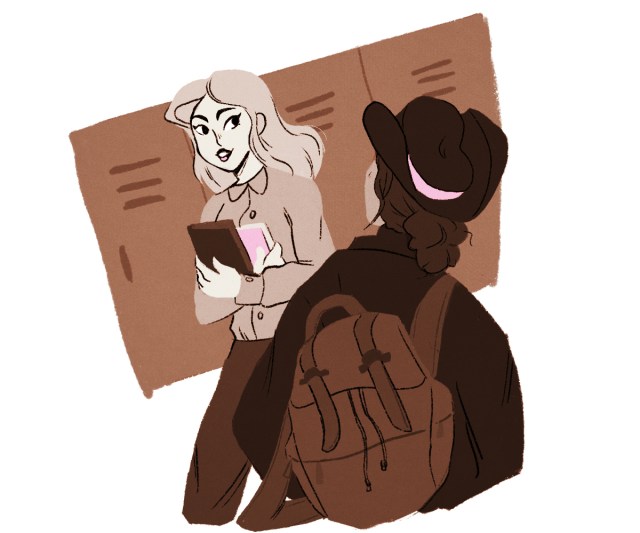
A couple of weeks later, I spotted her at a Friday-night basketball game. She was wearing a red coat, which made her easy to find in another river of people leaving the gym afterward when the crowd moved through the school’s heavy glass doors out into a black February night that turned our breath to frost. As everyone’s boots crunched on the salt-covered sidewalk, I maneuvered to a place where I could pretend to be surprised to see her. She seemed happy to see me (she seemed happy to see everyone). We walked together and I learned that the tall man a few steps ahead of us was her husband and the not-particularly small kids running through the snow were hers. The size of those kids surprised me, but not enough to distract me from my next goal. Having succeeded at being memorable, I now needed to be intriguing, which took some fast thinking. The crowd reached the parking lot and her family gathered around a four-door Thunderbird and I yelled a walking-away goodbye with a cliffhanger: “I have something to tell you sometime.”
“OK!” she yelled back. “I want to hear it!”
I had no idea what it was I wanted to tell her, but I went home and started writing.
What I wrote was a page or two about how I was an unusual kid, frequently misunderstood by people my own age, who could use an older, wiser friend. A few months later, she would confess that she’d found this letter weird enough to show to a school psychologist, wondering, among other things, whether I was gay and the letter was a come-on. This expert’s opinion was that I was strange but harmless, so she wrote back. Both of us would later burn boxes of letters.
My earliest ones laid out all of my cowboy-even-though-I’m-a-girl theories, supported by outlaw country lyrics flowing over pages of yellow legal paper hand-delivered every morning as she arrived at the door of her classroom. I played the cowboy’s game, testing whether she understood me. She told me I was 17 going on 30.
She would know what 30 felt like because that was how old she was. I’d have guessed mid-twenties except for the size of those bundled-up kids I’d seen after that basketball game, but she told me the story of how she’d gotten pregnant before she finished college, dropped out of her sorority and run off to marry the kids’ father. Now that her kids were older, she was trying to build a career, teaching and going back to school at night and starting work on a master’s degree. She confided that even though her husband wasn’t happy that his laundry piled up and his dinner wasn’t on the table when he got home from work, he was happy about the extra money she was bringing home. She drove a spotless sky-blue two-door Datsun 280Z, the furthest thing from a mom car in the teachers’ parking lot.
It smelled new, and like her perfume: Halston, not fruity and strong but subtle, like pheromones steeped in vanilla. Because we now had things to talk about, each day after school, when I told my parents I was making pottery in the art room and she told her family she had meetings, we’d cruise the dirt roads lining the cornfields just past the edge of town, listening to a radio station that was capitalizing on the outlaw country trend. I’d talk about what I was hearing in the songs, and she told me she was listening to this station all the time now.
“He has the sexiest voice I’ve ever heard,” she said one day when Waylon came on.
In my overnight writing to her, I’d been quoting Waylon the great platonic philosopher who helped back up my existential theories about school, myself, the universe. But she, more experienced in certain matters, had heard something all her own. When he sang from the shadows to a woman who’d married a rich man but wasn’t satisfied, telling her he knew her husband couldn’t give her the one thing she needed most of all and promising he’d be waiting if she ever came to call, maybe she felt his warm baritone somehow pulling her away from her own life, toward some unknown place where the excitement justified the risk. And now she’d introduced a new idea into our conversations.
We were heady over the closeness in her tiny car and this time together, which was technically innocent but illicit in a way that was somehow obvious to us, though we were far from comprehending it. We felt like outlaws but it turned out we were not especially creative, because we began to see familiar cars on these dusty roads: the parka-wearing kids in their beat-up Gremlins, slightly more popular long-hairs in their Dusters, kids we knew nothing about other than that we recognized a couple of faces through the dark windshield of a rusty van, everyone tipping cans and flicking lighters inside cupped hands.
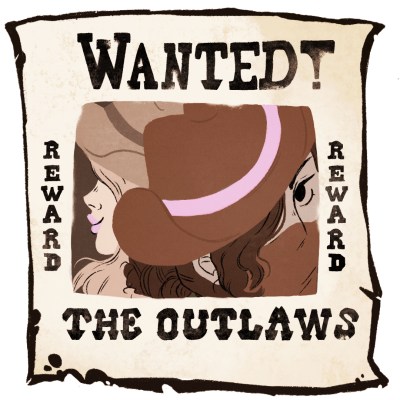
We weren’t smoking dope and drinking after school like these kids; we were just talking about drinking. We’d all heard stories of kids swinging by certain teachers’ houses with six-packs. Besides, I was getting drunk at those football and basketball games and before every high school dance – in my senior yearbook, there’s a picture of me in a flannel shirt and cowboy hat, upright but at a 45-degree angle, grinning unnaturally with half-closed eyes. And she was going out for happy hour with teachers every Friday. So we made plans for our parallel paths to cross on the night of the last school dance in May, which she was on duty to sponsor for an hour between 8 and 9. I would tell my parents I was meeting friends for pizza at 6 and park my car in the lot at a busy pizza restaurant, where she’d pick me up and we’d drive around and have a couple of beers before she met up with her teacher friends for their pre-dance cocktails; then we’d both make our obligatory appearances at the dance and sneak out after her shift ended and have a couple more beers and I’d be home for my midnight curfew.
The parking lot at the pizza place was busy at 6 o’clock on a Friday night, but I found a spot and waited, buzzy with adrenaline. It seemed to take forever for sky blue to flash in my rear-view mirror, but then I saw her eyes behind her sunglasses and her whole face seemed a little slurry as she mouthed: “Get your ass in here.”
She’d had happy hour on an empty stomach and probably shouldn’t have been driving, but we cracked Miller Lites as she pulled out of the parking lot. We had a couple of hours all our own, now, and soon both of us had beer-ballooning bladders, so she stopped at a place called Stan’s Lounge, out where one of our town’s main streets ended at the intersection of a two-lane highway. Stan’s was dark and empty inside, except for a band set up and about to start playing in the corner. The guys behind the microphones seemed happy to see us walk in, but their faces fell as we beelined for the bathroom. By the time we stumbled out again, they were just cranking up “Free Bird.”
This is when we must have begun to acknowledge we were in love.
In the bright light of the parking lot, scuffling over the white rock back to her car, I began to mope like Waylon contemplating leaving his best girl for no reason.
“If I left tomorrow, would you remember me?”
“Yeah,” she said, “I would.” Inside the 280Z, we grew maudlin. Maybe it was just occurring to us that in a couple of weeks it would be summer, which meant three months apart, or maybe it was the painful realization of something farther away, like graduation and my plans to go to college in another state. Either way, the rest of the night set a pattern for how our next few months would be: making increasingly risky plans, getting more drunk together so we could say to each other what we were really feeling, and then trying to act as if everything was normal. After we finished our six-pack, she deposited me back in the pizza place parking lot and we made our way to the dance separately, where I sulked around the edges, listening to a cover band play pop crap and watching her from across the disco-lit high school lunch room. She was laughing with other people her age, as if I wasn’t even there. I endured this until 15 minutes before her shift was over, then went to my car and drank now-warm beer before she picked me up again.
Out in the country it was a gorgeous spring night, so she parked on a gravel road next to a cornfield. She’d sobered up a little, but I was now on a planet of furious beer-soaked teenage hormones. I have no idea what she said that sent me lurching out of the car, but I heard her yell: “Don’t go!”
My next move might have been consciously dramatic, or I might have just been too drunk to walk, but now I was on my knees in the gravel, crying. I could hear her car door slam, hear her running over to me.
“What can I do?” she said.
I’d been spending a lot of time listening to Willie sing (Rodney Crowell’s) “’Till I Gain Control Again.” Of all the songs on all my records, it was the one that put words closest to how I’d been feeling: The singer’s met someone he’s never lied to; he’s shown his true self to her; there’s nothing he could ever hide from her; she sees him better than he sees himself. Out on the road ahead of him, he knows, are turns where he’ll spin. I only hope that you will hold me now, he sings, Till I gain control again.
All I could do was quote him. “Hold me,” I said.
“I can do that,” she said.
I was enclosed in soft warmth, breathing in Halston. “I know I’m not gay.”
“I know you’re not.”
But I was. And out on the road that lay before us now was the inevitable: a fast kiss on a drunken Saturday night when her husband was out of town; a few months later, after-school rooms rented by the hour at a Motel 6 near the airport.
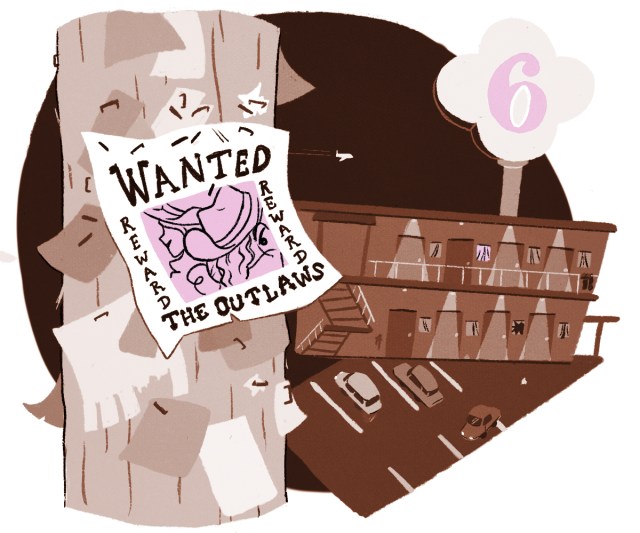
I graduated from high school and moved into a dorm at the university. She filed for divorce. But something else also changed dramatically the summer after I graduated: country music, spurred by the bathetic romance between John Travolta and Debra Winger in “Urban Cowboy.” Its pop soundtrack killed outlaw country like the gay bar would soon put an end to my first relationship.
At the university I was meeting lesbians and realizing there was a name and a community for what she and I had been doing. When a couple of women opened a bar on a quiet block in a neighborhood near the state capitol, I was astounded by the women I discovered there: professors and grad students huddled around pitchers of beer; half of the college softball team circling the pool table with cues in hand; workers from the motorcycle factory north of town; conservative-looking businesswomen. The DJ was a strong silent type with a rose tattoo on her forearm, whose slate-black eyes seemed distant but missed nothing. Here, while the dark room pulsed with Kool & the Gang, Diana Ross, the Spinners and super-freaky Rick James, we could touch, hold hands, sit with our arms around each other and feel normal. But we were new on the scene and interest in us was high and the DJ began hitting on her immediately. The women her age couldn’t understand what she was doing with someone who still had to use a fake ID, and I was entranced by a brooding loner with a long black braid who smoked unfiltered Camels and, later, at her house, played me smoldering love songs by women folk singers whose records were released by a lesbian label.
Our breakup flattened me, turned my blood to mercury, made the air impossible to breathe. While she proceeded to date nearly all of the women who hit on her at the bar, I left my hometown for the promised land of San Francisco. It would be decades before I could listen to country music again. Which was just as well, because by then country DJs were burning Dixie Chicks CDs and she’d gone back to men.
What had been formative for me was, for her, something more like a mid-life detour. But with this first heartbreak out of the way, I buckled down and grew up. When I’d tell this story to my friends, they’d suggest I was the victim of a crime. I’d try to explain how I’d been the one who started the whole thing, and that it felt like one of my greatest early achievements. Yes, she could have gone to jail, but wasn’t her fault.
It was Waylon and Willie who’d made us gay. ![]()
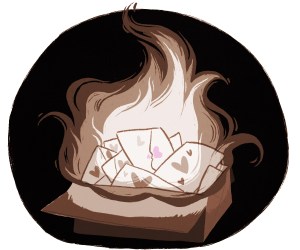




my favorite kind of story! there were so many good moments in this piece but here are some of my favorites:
“We were heady over the closeness in her tiny car and this time together, which was technically innocent but illicit in a way that was somehow obvious to us, though we were far from comprehending it.”
“It seemed to take forever for sky blue to flash in my rear-view mirror, but then I saw her eyes behind her sunglasses and her whole face seemed a little slurry as she mouthed: “Get your ass in here.””
Wow. That was beautifully written, poignant, and sexy. Thank you so much for this!
You had me at “Willie and Waylon.”
exactly me when i saw this in the submission box.
That was amazing. Thank you so much.
Incredible storytelling, and so relatable. Gonna go and listen to all the Waylon music now…
I cannot overstate how much I love Autostraddle. I wish I had had it as a teenager when I was parsing all the layers of my queerness, watching clips of “Loving Annabelle” at midnight with the volume on my family’s shared computer turned to its lowest setting. But, like the author, I did have country music. I was a “good kid,” certainly not an outlaw or a misfit like the men who paid the bills singing of their own undoing, but I felt twisted up inside anyway. Country helped me find a kind of communion, a distant shore of understanding I could make my way to when depression teased at taking me under. Who cares if I had to mark land’s edge through a kaleidoscope? Part of being queer meant knowing there was always more there than what I could plainly see, even if it made for tricky navigation. That, and all of the colors.
I went to bed last night hoping not to write this comment this morning. Because I love Autostraddle, and country music, and women, I tried to tell myself that the biphobia oozing from this piece wasn’t really there. Because I want to be generous and assume the author’s best intentions, I pushed the shame I felt reading this piece aside. But I woke up thinking about the people who have bided their time, waiting for me to “go back to men” once my “mid-life detour” was over. The straight and queer people alike who could unite over the shared, “I told you so.” Whose bad behavior are we supposed to consider here–the narrator’s, or the “temporarily” gay teacher’s, the one who set a match to her marriage and pursued an affair with an underage person she promptly dropped to round out the slutty bisexual trope narrative? I kept telling myself as I read this that I was being too sensitive, that it was clearly just the facts of the case unfolding. Maybe it *was* all a ruse, that teacher’s unhealthy coping mechanisms unfurling at lightning speed. Bisexual people are all damaged after all, aren’t we?
This was painful for me to read, and saying something about it is painful to write. I’m doing it because I love Autostraddle, and by extension, the people who write for and read this site. I’m so proud of the community here, even if it’s one I lurk in more often than not. I want to hold it to the high standard it has so often set and met when it comes to making people like me feel like we belong. I want the bi folks who read this to know that if you felt that familiar twinge of nausea and shame in your gut, it was real. I love you and I see you. We may be misfits and outlaws, too, but we’re all right.
Thank you for being brave and saying this; I had a similar stomach dropping reaction to that very line, but passed it off as just one more emotion I felt in relation to this piece (which I loved overall!). I would like to hope that the author did not intend it to be read that way, but accountability is important.
Hi Adrien,
I’m so sorry that my writing caused this pain. I definitely did *not* intend for my piece to be any commentary on bisexuality. I was simply, as you say, laying out the facts of what happened. I used the word “detour” because she and I spent so much time in the car, so I was trying to keep up the imagery of the narrative. As painful as your comment was to write, I appreciate the opportunity to apologize for the feeling in your gut. Please know that I believe bi people are more than all right.
Thank you,
cj
as i was reading the piece i became more and more sentimental. very beautifully written,touched me so much. and then, there where the words. the biphobia. the erasure of the teachers’ sexual identity. all, in this tiny word. ”back to” . like bi people go back and forth, like we have to choose at some point…. like it’s not part of us.
woke up in the morning hoping i had put it behind me, as it happens with so many other things i read online. but it’s written here, in the amazing space and i thought it feels like a place i could put my feelings into words. so with a cramped stomach and a little bit shaky hands i write to all the bi people that are part of this community that we are here,real and belong no matter what.
so thank you Adrien and Wren for opening the path for more things to be written.
i loved this piece so! much! (even though i have a special place in my heart for urban cowboy and really anything debra winger has ever done or will do, ok.)
thank you for letting me relive a version of my life that i didn’t get to have, if that makes sense. i’d clear my schedule to watch the film adaptation of this story.
I love this essay so much. So, so much. The writing and storytelling are both masterful.
Thanks for this. CJ and editors, could the paragraph about parting ways please be edited (e.g. taking out or replacing ‘detour’ and ‘back to’) to take into account impact (which is landing with multiple ppl as biphobic) as well as intention (which I believe is not biphobic)?
PS really appreciated the story and the imagery – thank you CJ
Lovely story telling. Thank you.